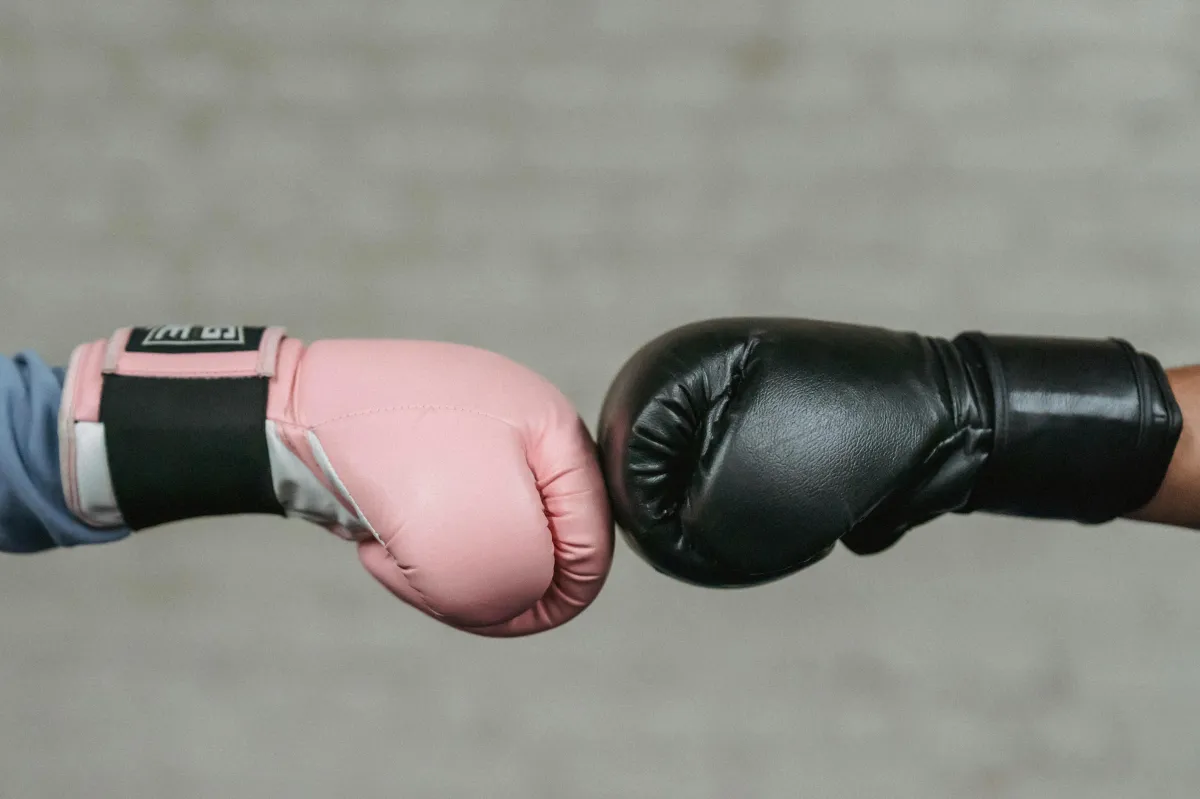Why Martial Arts?
There are many psychological, spiritual, and physical benefits of getting involved in martial arts. The benefits of training in martial arts go way beyond self-defense. It can help in nearly every aspect of one's life. Improved health and fitness, athletic enhancement, increased confidence, better concentration, better behavior, leadership; the list of benefits goes on and on.
Here are a few reasons and the benefits for learning Martial Arts.
ATHLETIC ENHANCEMENT - FITNESS - HEALTH
Martial arts training offers several advantages. It is amazingly effective in enhancing general coordination because it uses every part of the body in a balanced way. Upper body, lower body, right side, left side, forward movement, lateral movement, rotational movement ... It's all included in martial arts training.
The three pieces of the fitness puzzle are strength, flexibility and endurance. Martial arts training demands a balance between the three. Therefore, a person who trains in martial arts will find their deficiencies improve quickly. Also, because of the balance in the three pieces of the fitness puzzle, they are less likely to injure themselves while participating in other athletic endeavors. Martial arts provides a great all-around fitness workout and will keep you in great shape. It also combines mental focus with physical toughness, which can push the body to do some incredible things.
Martial arts training is a proven link to better health for people of all ages. It is great exercise, and unlike more boring and repetitive routines; students get a good workout as they enjoy the process of training and learning self-defense at the same time. Also, most martial arts programs include discussions of diet and lifestyle habits, enabling long-term training to influence the development of life-long healthy habits.


BETTER COORDINATION
All martial arts require special awareness and coordinating movement with another person. Some martial arts even include the use of props and tools. All of these factors improve the coordination and awareness of the participant's body as well as the people and objects around them.
CONCENTRATION
Very few activities engage the mind, body and spirit more than martial arts. Because of this, a person's ability to concentrate is greatly enhanced by their martial arts training and this concentration tends to be easily transferable to other activities. By attending a martial arts class, students become accustomed to direction and structure. In this environment you have to pay attention to the task at hand and rid your mind of distractions.
CONFIDENCE & SELF ESTEEM
Martial arts taught correctly leads to increased confidence for a couple of specific reasons. First, there are no bench-sitters; everyone participates. Rather than comparing one student to another, students are judged against their own potential. Second, the structure of martial arts is built on the concept of setting people up for success by giving them a series of realistic, short-term goals that they can attain quickly while keeping them focused on an exciting, long-term goal. Each time a student experiences success, their confidence improves until the student learns that with hard work and dedication, they can accomplish just about anything.
By reinforcing these positive attributes along with martial arts training, the benefits can be profound. The student will become more powerful than they could ever imagine. The more skills a student learns, and the higher the mastery of technique is achieved, the more confident the student will become, and appreciate self-worth. The more a student accomplishes, the more he or she will be comfortable with taking risks and stepping out of their comfort zone when faced with an unfamiliar task.
Being in a new environment can be scary for kids, but learning how to navigate new or unknown situations in a safe controlled environment is a great skill that will benefit them for life.


SET & ACHIEVE GOALS
Life is a journey, and not always easy. Learning martial arts teaches that the journey is broken down into small achievements, which accumulate into much larger goals and accomplishments. It teaches patience, discipline, and humility, as you move up the ladder. Each step you take gets harder and harder, but it teaches you to push yourself to reach every milestone along the way. Most forms of martial arts use colored belts to represent their ranking systems. When you strive towards a new belt, you're learning valuable lessons about setting and reaching goals.
IMPROVED SOCIAL SKILLS
Martial arts can also help develop social skills. This is because students are learning in a “team environment” working alongside others with the same goals. Everyone is learning and growing together. This is especially beneficial for children. In martial arts classes, they'll be able to learn how to resolve conflicts, make new friends, and show compassion.


DEVELOP SELF DISCIPLINE
It is crucial to realize that achieving your martial arts goals depends on only the student; no one else can do it. This promotes self-reliance and independence! Anyone who takes martial arts will need to put in the work to improve and grow. To be the best, the student will need to be dedicated and put in the required effort. As the student progresses, he or she will gain self-discipline that will be beneficial in every other aspect of one’s life.
HONOR, RESPECT & COURTESY
Recognizing that martial arts teaches techniques that could be harmful to others if applied, martial arts instructors are obliged to stress the importance of respect, courtesy, and restraint. People who are skilled in traditional martial arts tend to be extremely respectful, considerate and composed.
Traditional martial arts will teach the importance of putting ego aside and respecting the instructor, as well as others in higher positions, such as teachers, parents, or elders. Learning martial arts reinforces etiquette, respecting rules, and following a code of honor. Students will learn to show some humility.
SELF DEFENSE ~ NON-VIOLENT CONFLICT RESOLUTION
"Practice the fight so that you don't have to" is a phrase that is often used to describe the self-defense benefits of martial arts training. It refers to the fact that as a person becomes more confident in their ability to defend themselves through martial arts training, the need to defend themselves automatically decreases because they unconsciously begin to carry themselves in a more confident manner. Confidence is projected in a martial artist by the way they present themselves through body language, making them less vulnerable to being selected by a predator. Martial arts training includes strategic self-defense as well as actual self-defense. Students are taught how to recognize a potentially dangerous situation and how to avoid confrontations.
Learning martial arts teaches you to mentally and physically refrain from violence and only use it for self-defense when it's the last resort. Martial artists will try to refrain from conflict and use non-violent conflict resolution skills, emphasizing the importance of avoiding a physical altercation. In the real world, it's equivalent to having the mental discipline to refrain from getting into fights.


STRESS RELIEF
Did you know that practicing martial arts can help relieve stress? Often this is accomplished by focusing on the present and things you CAN control. Martial arts also emphasize being in complete control of your breathing and thoughts.
When you do this, you're learning a skill that can be applied throughout all areas of life. When you’re more focused and confident and your thoughts are clearer, you’ll relieve yourself of stress in so many other parts of life too.
More than anything, going to a martial arts class will help you leave with an increased mental focus and a greater appreciation for the world around you through a fun, safe, and challenging workout in an encouraging environment with like-minded people.
Join a Class!
People have many reasons to study the martial arts. Studying the martial arts offers individuals so many benefits, including feelings of empowerment, emotional regulation, stress reduction, physical fitness, self-defense, and life purpose. No matter what age a person decides to start a martial arts class, a martial arts student will develop and learn skills that become a life changing experience.



